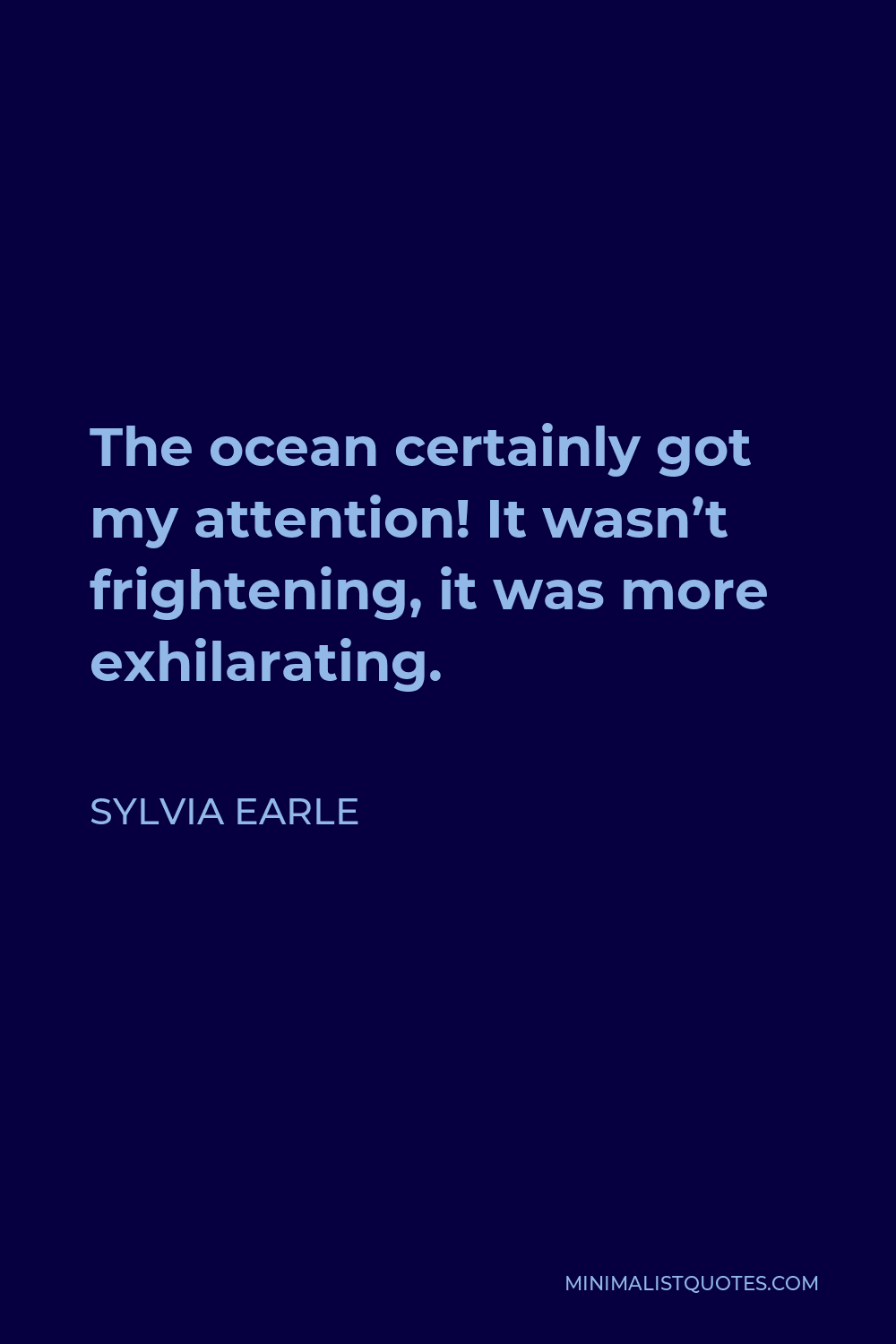A lumberman will look at a forest and see so many board feet of lumber. I see a living city.
SYLVIA EARLEThe ocean certainly got my attention! It wasn’t frightening, it was more exhilarating.
More Sylvia Earle Quotes
-







-





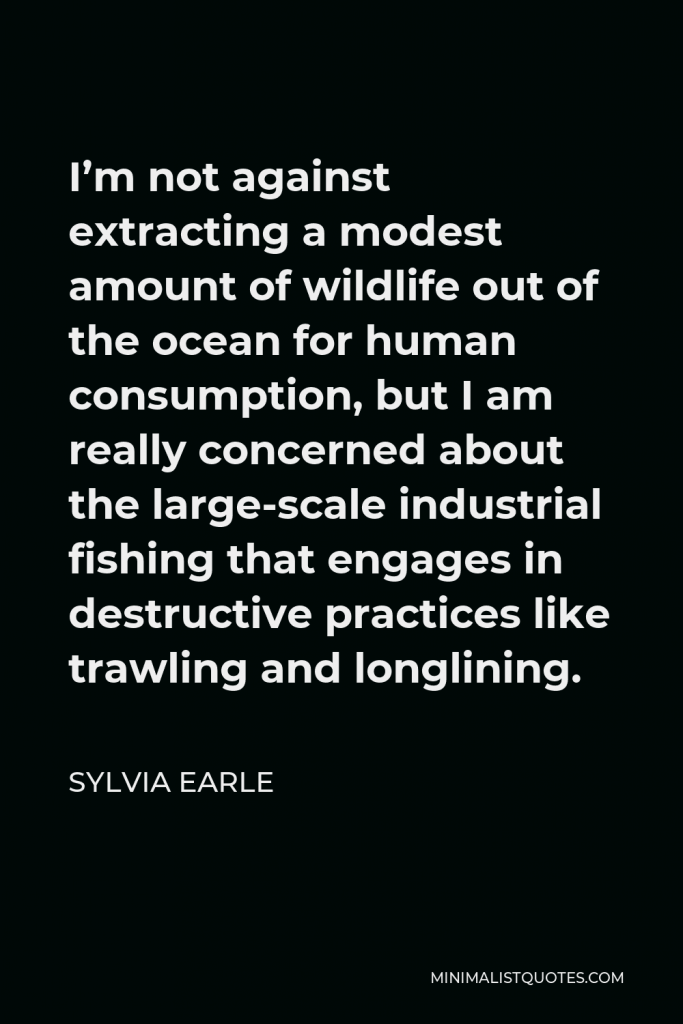

I’m not against extracting a modest amount of wildlife out of the ocean for human consumption, but I am really concerned about the large-scale industrial fishing that engages in destructive practices like trawling and longlining.
SYLVIA EARLE -





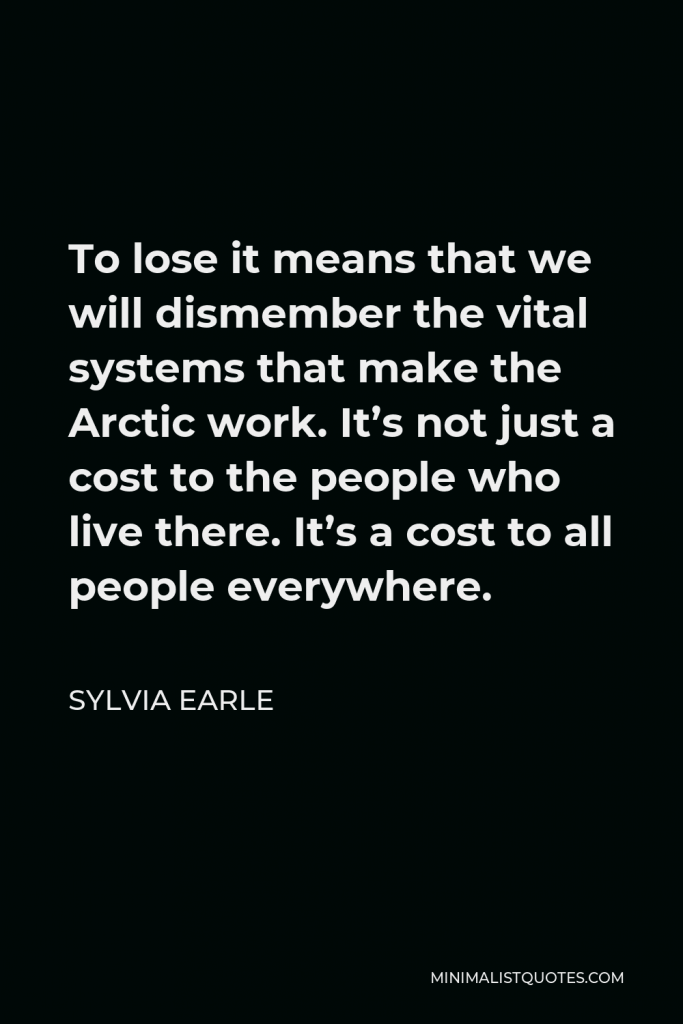

To lose it means that we will dismember the vital systems that make the Arctic work. It’s not just a cost to the people who live there. It’s a cost to all people everywhere.
SYLVIA EARLE -





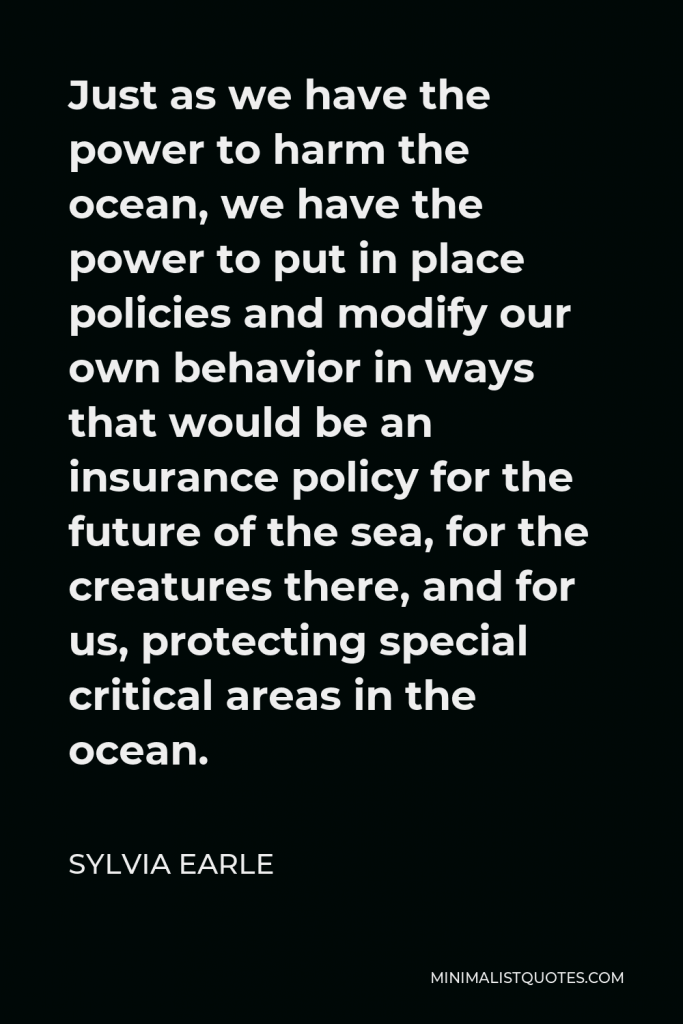

Just as we have the power to harm the ocean, we have the power to put in place policies and modify our own behavior in ways that would be an insurance policy for the future of the sea, for the creatures there, and for us, protecting special critical areas in the ocean.
SYLVIA EARLE -







My first encounter with the ocean was on the Jersey Shore when I was three years old and I got knocked over by a wave.
SYLVIA EARLE -





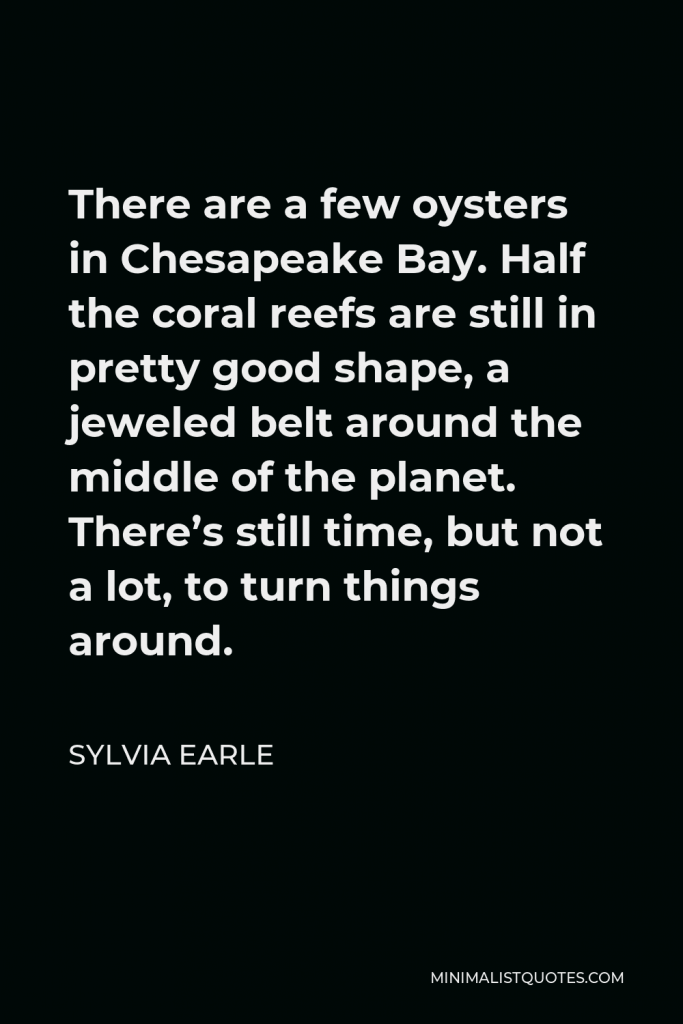

There are a few oysters in Chesapeake Bay. Half the coral reefs are still in pretty good shape, a jeweled belt around the middle of the planet. There’s still time, but not a lot, to turn things around.
SYLVIA EARLE -







Anything injured, or any unusual creature somebody found, they would always come to our doorstep.
SYLVIA EARLE -





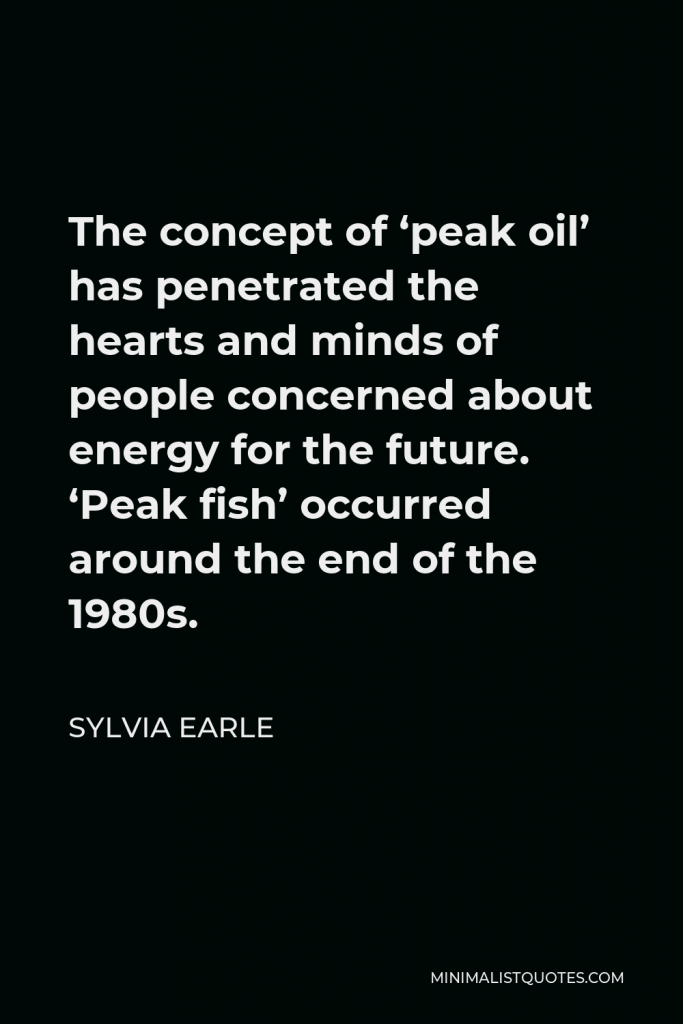

The concept of ‘peak oil’ has penetrated the hearts and minds of people concerned about energy for the future. ‘Peak fish’ occurred around the end of the 1980s.
SYLVIA EARLE -





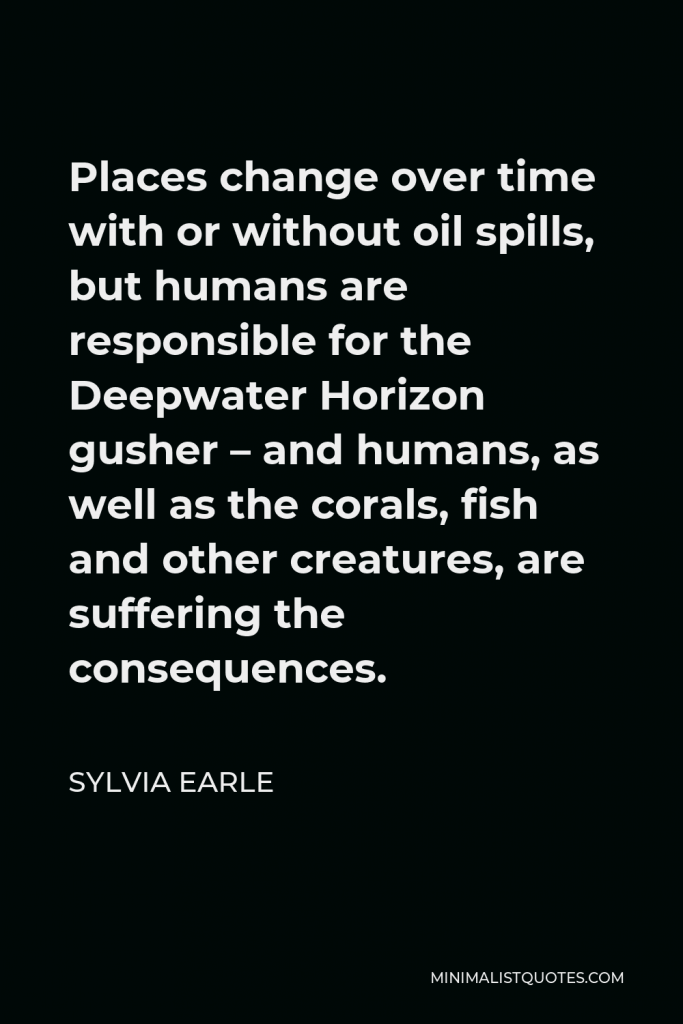

Places change over time with or without oil spills, but humans are responsible for the Deepwater Horizon gusher – and humans, as well as the corals, fish and other creatures, are suffering the consequences.
SYLVIA EARLE -





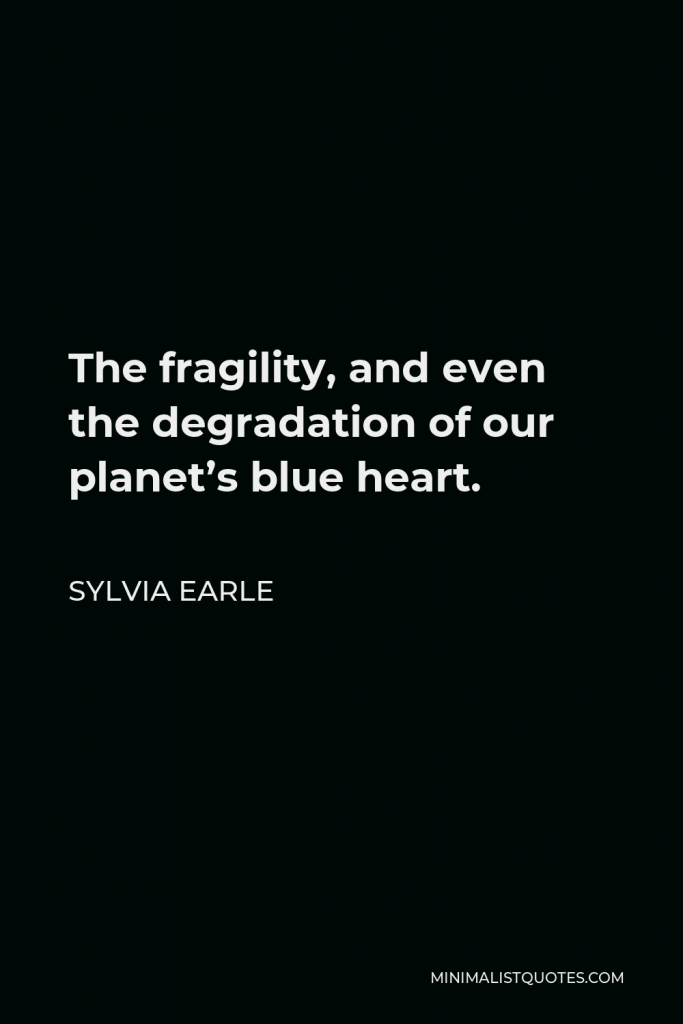

The fragility, and even the degradation of our planet’s blue heart.
SYLVIA EARLE -







They have curiosity. ‘Who, what, where, why, when, and how!’ They never stop asking questions, and I never stop asking questions, just like a five year old.
SYLVIA EARLE -







They have a lateral line down their whole body that senses motion, but maybe it does more than that.
SYLVIA EARLE -





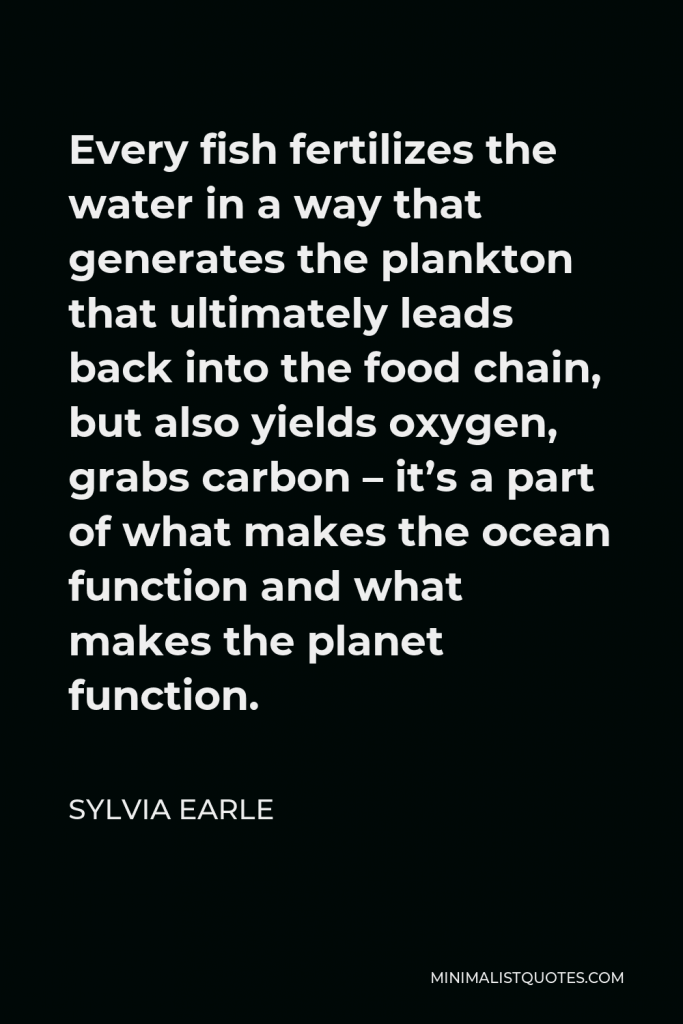

Every fish fertilizes the water in a way that generates the plankton that ultimately leads back into the food chain, but also yields oxygen, grabs carbon – it’s a part of what makes the ocean function and what makes the planet function.
SYLVIA EARLE -





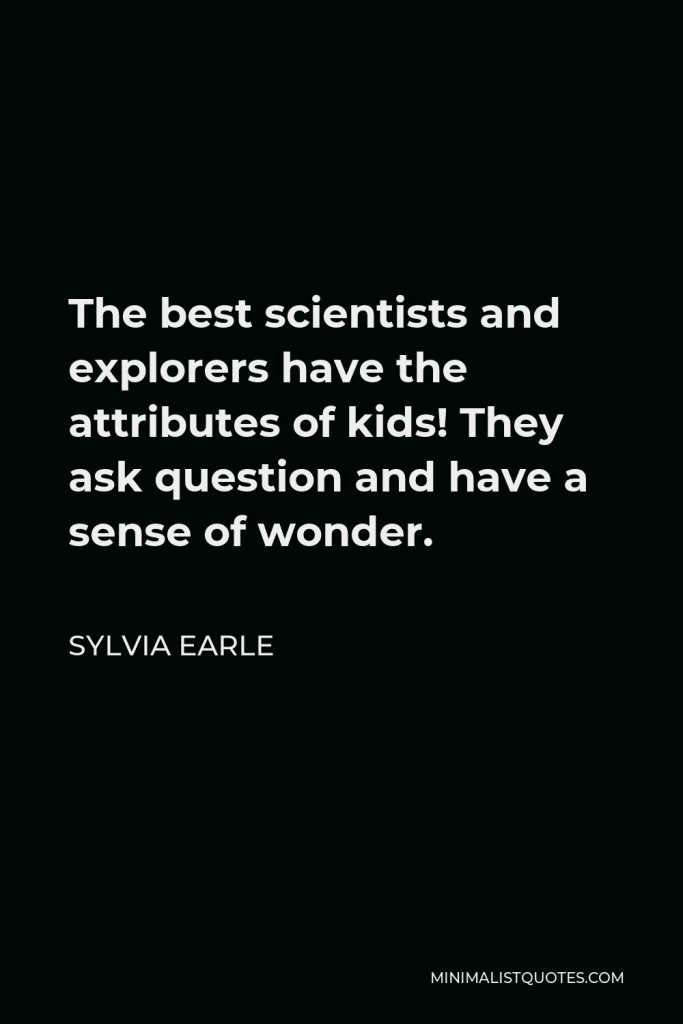

The best scientists and explorers have the attributes of kids! They ask question and have a sense of wonder.
SYLVIA EARLE -







Humans are the only creatures with the ability to dive deep in the sea, fly high in the sky, send instant messages around the globe, reflect on the past, assess the present and imagine the future.
SYLVIA EARLE -







We have become frighteningly effective at altering nature.
SYLVIA EARLE


